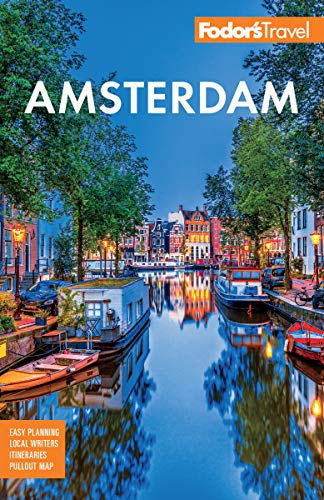Multicultural Amsterdam
The face of Amsterdam has changed dramatically since World War II. New arrivals have created a melting-pot society, and today the Netherlands is one of Europe's most ethnically diverse lands: Amsterdam famously has 180 nationalities. But many don't realize the country is merely continuing a long tradition.
The first wave of mass immigration happened in the 16th century, when the tyrannical Catholic Spanish reconquered Antwerp and many Protestants and Anabaptists fled north to avoid persecution. In the 17th century, during the Netherlands' Golden Age, the gulden (guilder) was pouring into the country while the rest of Europe struggled with poverty and high unemployment. At the time, around half the people in the city were first-generation migrants. Regardless of what they thought of all these foreigners, the pragmatic Dutch tolerated them because they realized they were vital for keeping the economy moving. The country also gained a reputation as a haven for refugees, and at various times offered shelter to Portuguese and Eastern European Jews, French Huguenots, and the Pilgrim Fathers.
In the 20th century, things kicked into high gear. Assisted by the Marshall Plan, the Dutch economy experienced unprecedented growth in the 1950s and '60s. Labor was needed, and in turn an open invitation was extended to migrant workers. Initially from Italy, Greece, and Spain, they also came in large numbers from Morocco and Turkey. Today there are around 1 million Muslims in the Netherlands—about 6% of the population. At the same time, the dismantling of the Dutch empire meant new arrivals from the ex-colonies of Indonesia and Suriname.
More recently, refugees have been arriving from war-torn places like Iran, the former Yugoslavia, Somalia, Eritrea, and Syria. And, after various Eastern European countries joined the European Union in the beginning of this century, a new wave has flooded in from places like Poland and Romania. Despite the nation's outwardly tolerant face, however, there are discontented rumblings; many view the influx of different cultures as a threat to the traditional "Dutch" way of life. Film director and author Theo van Gogh's brutal murder by a Dutch-Moroccan youth for "blasphemy" caused huge shock waves. After a brief shift away from liberal politics in the Netherlands, as in other European countries, recent elections saw a return to center-left political coalition rule.




